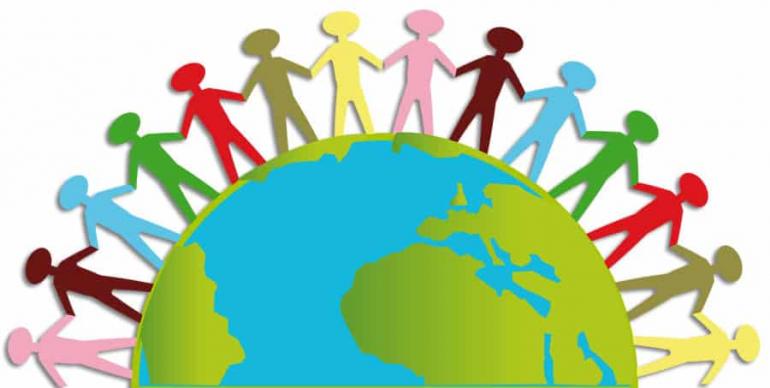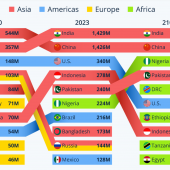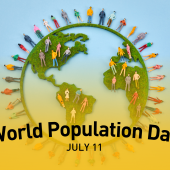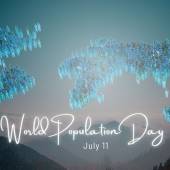World Population Day (July 11)

And God blessed them. And God said to them, “Be fruitful and multiply and fill the earth and subdue it and have dominion over the fish of the sea and over the birds of the heavens and over every living thing that moves on the earth.” (Genesis 1:28)
The Creator wants his creatures to be fruitful and to multiply and to fill the earth. That is the will of God. We, his creatures, should be aware of that, and filling the earth and multiplying is our participation of God’s creation.
Let us join our hands, protect. and participate in God’s creation on this special day.
On July 11 every year, the world marks World Population Day. You may not have heard of such a day before but it has been celebrated for almost three decades already.
The aim of this day is to focus the world’s attention on the importance of population issues.
Population issue includes family planning, gender equality, child marriage, human rights, right to health, baby's health etc.
World Population Day focuses on the importance of reproductive health and how it affects overall growth and development plans and programs.
World leaders in 1968 proclaimed that the public had a basic human right to determine freely and responsibly the number and timing of their children.
In 1989, World Population Day was established by the Governing Council of the United National Development Program as an outgrowth of the Day of Five Billion which was observed on July 11, 1987.
This year, the COVID-19 crisis has taken a staggering toll on people, communities and economies everywhere. But not everyone is affected equally.
Women, who account for the largest share of front-line health workers, for example, are disproportionately exposed to the coronavirus.
As countries are on lockdown and health systems struggle to cope, sexual and reproductive health services are being sidelined and gender-based violence is on the rise.
Recent United Nations Population Fund research highlighted that if the lockdown continues for six months with major disruptions to health services, then 31 million additional cases of gender-based violence can be expected.
The disruption of UNFPA’s programs on the ground could result in 2 million cases of female genital mutilation and 13 million child marriages between 2020 and 2030 that could have been averted.
Moreover, women disproportionately work in insecure labour markets and are harder hit by the economic impacts of COVID-19.
Nearly 60 percent of women worldwide work in the informal economy, at greater risk of falling into poverty.
Women’s unpaid care work has increased as a result of school closures and the increased needs of older people.
The pandemic is hitting marginalized communities particularly hard, deepening inequalities and threatening to set us back in our efforts to leave no one behind.
Our response to COVID-19 in every country is critical and will determine how fast the world recovers and whether we achieve the Sustainable Development Goals or not.
On July 11, World Population Day, UNFPA aims to raise awareness about the sexual and reproductive health needs and vulnerabilities of women and girls during the pandemic, to highlight how we can safeguard hard-fought gains.
Radio Veritas Asia (RVA), a media platform of the Catholic Church, aims to share Christ. RVA started in 1969 as a continental Catholic radio station to serve Asian countries in their respective local language, thus earning the tag “the Voice of Asian Christianity.” Responding to the emerging context, RVA embraced media platforms to connect with the global Asian audience via its 21 language websites and various social media platforms.














